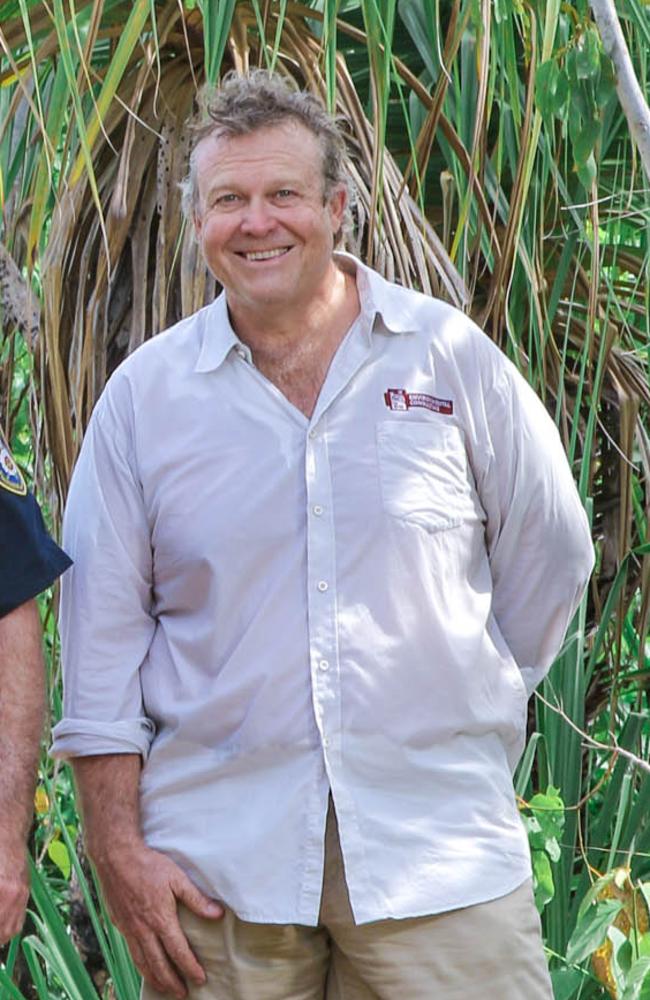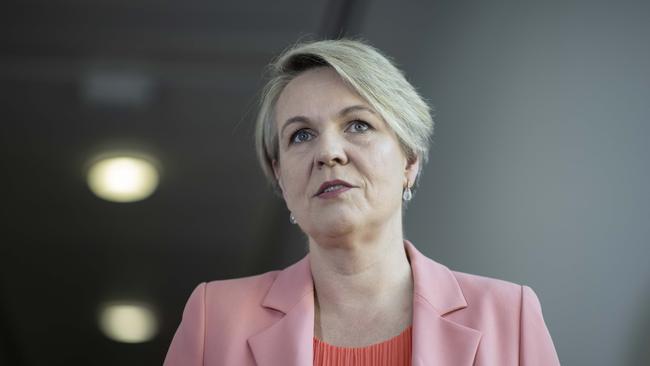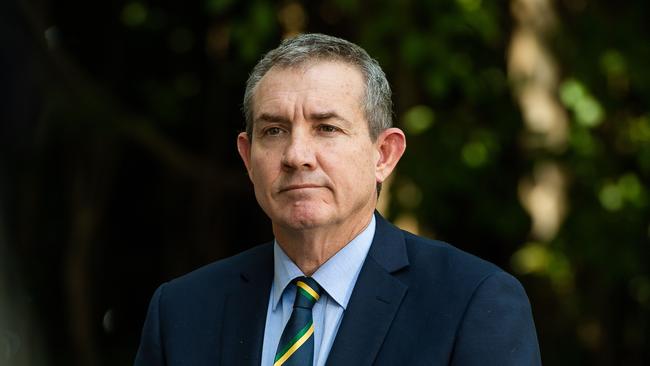Grahame Webb weighs in on Territory’s great crocodile cull debate
The Territory’s resident croc expert Professor Grahame Webb has weighed in on the latest great cull debate. Here’s what he and our pollies had to say.
Northern Territory
Don't miss out on the headlines from Northern Territory. Followed categories will be added to My News.
To cull or not to cull our beloved Territory icon?
Chief Minister Natasha Fyles says we need to “seriously consider” bringing some form of culling back after the terrifying attack at Wangi Falls this week.
But as our resident croc expert Professor Grahame Webb rightly points out – hundreds of salties are already killed every year.
More than 160 saltwater crocodiles have been captured in the Top End this year alone, with that figure expected to reach about 300 by the year’s end.
The question Territorians are facing once again is whether the reptile’s 100,000-odd population is becoming too threatening to our way of life.
Here’s what people think:

Our top croc expert
The Territory’s most respected crocodile expert Professor Grahame Webb weighed in on the great culling debate, labelling the response to just one croc attack a “storm in a teacup”.
Professor Webb said culling was already happening to some extent under the Territory’s globally-renowned management program and said the Chief Minister likely made a “bad choice of words”.
“Getting rid of the problem crocodiles quickly and efficiently – using whatever method is needed – is a sound part of our management program,” he said.
“People think culling is when you’re going to reduce the population and be safe.
“Here’s the question: If you cut the population down by half, which politician is going to now say, ‘it’s now safe to get back in the water’? None.”
Professor Webb said if any changes to the Territory’s crocodile management program were needed it would be increased staff top check croc traps and updated detection technology.

A local ecology group
The head of one of the Top End’s leading environmental consultancy groups says the croc population is creating an “unnecessarily” dangerous environment.
EcOz managing director Ray Hall said the Territory was currently in a situation where large numbers of crocs have been able to grow up without an “alpha” controlling a habitat.
“This means we have larger than natural numbers of medium to large sized male crocodiles,” he said.
“We have too many aggressive males who are not shy of people and guns because they haven’t been shot at.
“This creates an unnecessarily and extra unsafe environment.”
Mr Hall said a natural crocodile population in a single area would typically include several female crocodiles and one alpha male who “actively kills off any male competition”.
“A natural population density is not safe but safer than what we have now,” he said.

The feds
Environment Minister Tanya Plibersek was contacted for comment however a department spokesman said the responsibility lies with the Territory.
“State and territory governments are responsible for managing populations of crocodiles, including for human safety,” a Department of Climate Change, Energy, the Environment and Water spokesman said.
“The saltwater crocodile is a listed migratory and listed marine species under federal legislation (Environment Protection and Biodiversity Conservation Act 1999).
“Any culling or population management of saltwater crocodiles must be undertaken in a manner that would not be detrimental to the conservation of the species.”
The commonwealth is responsible for saltwater crocodile management in Kakadu National Park, however the Territory looks after the rest.
The Chief Minister is also unlikely to take any action without the support of her Labor counterparts in Canberra – as suggested by the fact she said would be formally contacting them to raise the issue.

The opposition
In a rare turn of events, both sides of Territory politics appear to be on the same side of the fence when it comes to a potential croc cull.
Deputy Opposition Leader Gerard Maley said “we need to get the balance right” and pressured the government to act.
“The CLP opposition welcomes a conversation about croc culling in the NT, we need to get the balance right between protecting Territorians and crocodile management,” he said.
“However, Natasha Fyles and her government have consistently failed to put forward solutions to improve the lives of Territorians and there is no room for another failure from the Fyles Labor government on this issue.”

The greens
The NT Greens also welcomed the conversation about croc culling but warned any action should be led by science, not politics.
“The NT Greens wants visitors and Territorians to be able to experience the incredible beauty of the NT environment safely,” NT Greens convenor Jonathan Parry said.
“That being said we want to see steps taken that are led by evidence, experts and traditional owners.
“Any talk of culling needs to be backed by evidence – it cannot just be a knee-jerk reaction.
“Crocs are part of the Territory identity and we are completely against an open season approach to culling that’s not backed by evidence and traditional knowledge.”
Mr Parry also voiced concerns the government would not act according to science.
“The Labor government is currently charging on a dangerous course when it comes to protecting our environment and biodiversity,” he said.
A range of stakeholders including traditional owner ranger groups, the crocodile management team and tourism players have also been contacted for comment.




